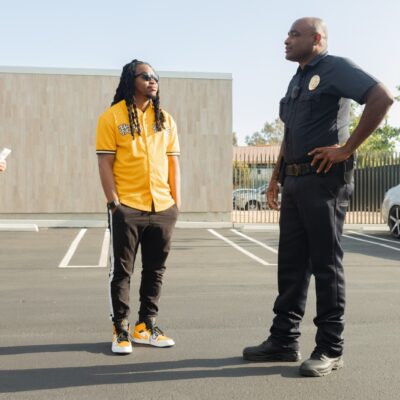The game of two-up is a particularly Australian social event. It is an uncomplicated form of gambling, often accompanied by drinking. It is an old game with origins in the United Kingdom, where it was formerly known as ‘pitch & toss’. It was popularised over a century ago by the return of our mass volunteer army. It is an activity at once eulogised yet severely limited by government legislation.
The rules of this coin tossing game are simple. Two coins are placed on a small, narrow wooden board, called a ‘kip’. Bets are exchanged in cash between participants. Players bet which side of the two coins will come down – heads or tails. Both coins must come down with the same side. A mixed result results in the coins being cast again.
A ‘spinner’ throws the coins in the air at least three metres (the coins cannot contact the roof or other impediment) and must land within the area of the circle of play, which is often marked off by rope into a roughly circular area. More often the person betting on heads holds the combined funds of the bet.
It is illegal most of the year. It is most often played and associated with ANZAC Day.
A few essential facts about the law of two-up in NSW:
- Two-up is permitted under the Gambling (Two-up) Act 1998. It is permitted to be played on three days a year: ANZAC Day (25 April), Victory in the Pacific Day (15 August) and Remembrance Day (11 November).
- It is illegal on all other days. Those participating in it can be subject to a maximum penalty of 12 months imprisonment and/or a fine of $5,500.
- The limit of three days per year does not apply to Broken Hill, where, with approval, it can be played all year round.
- No permit is necessary.
- No profit can be earned, nor fee to play charged (except for a charitable donation). Entrance fees to enter a venue not related to the game may be levied.
- Other days can be created by regulation in the future. This means that theoretically at law two-up could be allowed to occur on more than three available days a year by regulatory pronouncement, without legislative amendment.
- This said, given that the three days which are presently allowed by law all mark a major war campaign, the sort of events which would be required to obtain a further day of play are obviously not desirable.
Given the simplicity of the even chance on each throw, the odds of two-up seem to me, for gambling, to be reasonably good, which may or may not have anything to do with why it is illegal 362 days a year.
Tomorrow is ANZAC Day, and the tradition of coin tossing once a year to honour those who served will continue, loved by many, but played rarely by law.
Disclaimer: This is intended as general information only and not to be construed as legal advice. The above information is subject to changes over time. You should always seek professional advice before taking any course of action.


















